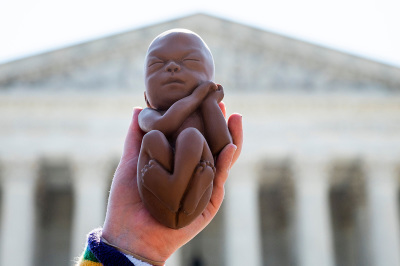Human rights must not be twisted to include abortion

Senate Republicans are beginning to sound the alarm about a dangerous provision being slipped into U.S. sanction bills. Instead of simply reauthorizing the Global Magnitsky Act — an important mechanism for the U.S. government to sanction human rights violators — Democrats have made dangerous modifications to the language now waiting to be voted on in the Senate.
The new changes would make a tool meant to punish foreign individuals for “gross violations of internationally recognized human rights” (a term defined in U.S. law) to simply “serious human rights abuse” (a legally undefined concept).
Some conservative legislators have recognized how this bill might be abused. Sen. Rand Paul, R-Ky., told Politico, “If you don’t define what human rights abuses are, you set up something so wide open that you could have abuse of a president who’s allowed to sanction anyone in the world for anything they feel like.”
This begs the question: just how might an untethered definition of human rights be abused by a far-Left administration that promotes an ever-expanding list of what they consider to be human rights? Sadly, the World Health Organization (WHO) offered a shameless example earlier this month of what twisting human rights to fit a radical agenda looks like.
In a massive report on “Abortion care guidelines,” the WHO made a series of bold recommendations meant to guide the policies of all countries. Among the many policy recommendations were the removal of laws and regulations that “restrict abortion by grounds” and the insistence that “abortion be available on the request of the woman, girl or other pregnant person.” Make no mistake — the WHO is urging countries to drop any protections for life in the womb.
To justify this radical push, the report points to several rights listed in international human rights treaties (some of which the United States has chosen not to ratify). Yet, it twists each of these rights to read a supposed “right” to abortion into it. This is a disingenuous interpretation of international human rights agreements; we shouldn’t let the WHO — and all the UN entities that have contributed to this corrupt understanding of human rights — set the standard. Former Secretary of State Mike Pompeo saw this dangerous trend and commissioned a report from the Unalienable Rights Commission to ground the U.S. government’s understanding of human rights in American tradition and our commitment to international human rights principles.
It’s worth noting that both the right to life and the right to be recognized as a person before the law are widely-recognized in human rights treaties, including the International Covenant on Civil and Political Rights (ICCPR), which the United States ratified in 1992. While activists try to make human rights about expanding abortion, it’s up to us to uphold the integrity of the human rights movement.
Writing in National Review, Wesley Smith hinted at the dangers this WHO report poses for countries that want to protect life. “The WHO has forgotten that the entire world does not share the moral and policy perspectives of progressive Americans, Western European elites, and the odious CCP. In this sense, these so-called leaders are trying to impose policies on the world that I wager the majority of the people it supposedly serves do not find moral or right.”
In fact, the WHO’s guidelines are aligned with the abortion laws of China and North Korea — two of the greatest human rights violators of our time — and, sadly, the United States. However, they are completely out of step with all but six countries around the world that protect life in the womb after the second trimester. Rescinding the Protecting Life in Global Health Assistance policy, which prevented U.S. taxpayer money from funding abortions in other countries, was one of President Biden’s first acts in office, demonstrating his priorities and laying the groundwork for his administration to promote abortion around the world.
This is where the Democrat’s change of the Global Magnitsky Act’s language comes in. If the Biden administration is given the unlimited authority to sanction foreign individuals for “serious human rights violations” (again, a term not defined in U.S. law), there is a legitimate concern that administration officials will use the sanctions to target foreign officials for pro-life laws — something that the WHO would no doubt approve of. This would be a gross misuse of a human rights tool and waters down and confuses the profound meaning of human rights.
Congress should retain the Global Magnitsky Act’s original language. This will prevent opportunities for abuse by leftist administrations to punish countries with conservative values. The recent WHO report is a glaring example of why we must vigilantly protect against vague definitions of human rights that can be twisted to push radical policies.
Originally published at the Family Research Council.
Arielle Del Turco is Assistant Director of the Center for Religious Liberty at Family Research Council.





















